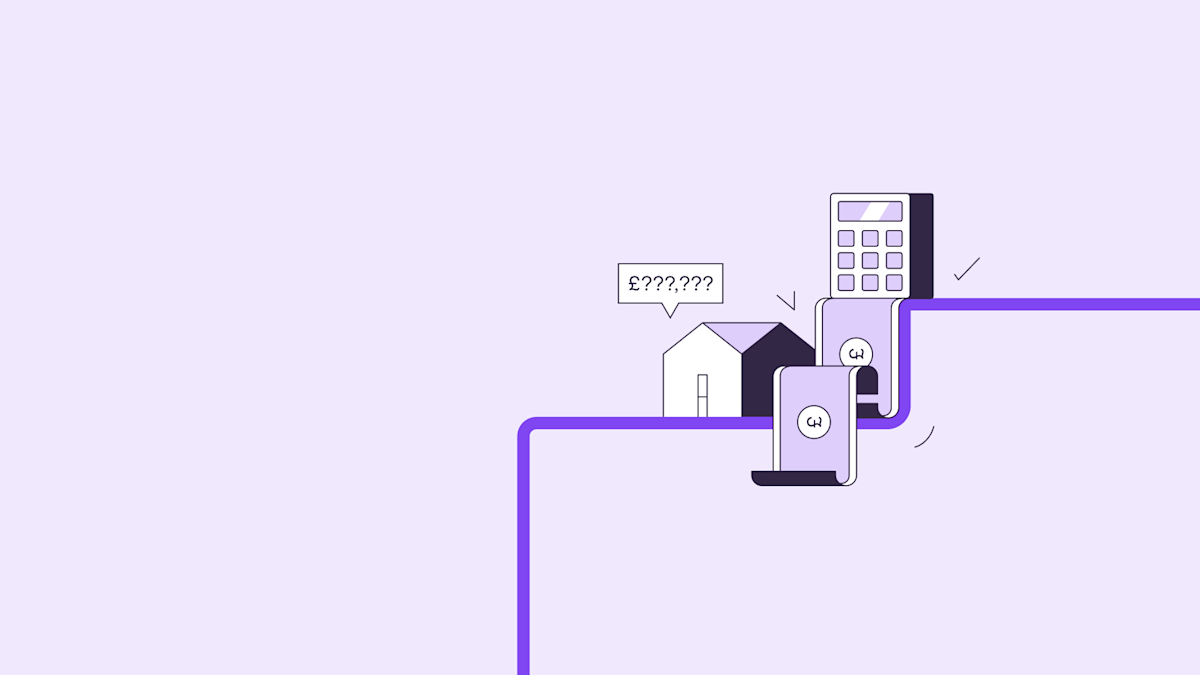Help to Buy is a government scheme that gives buyers a government loan to boost their deposit and buy their first home.
While the scheme has now closed across most of the UK, you can still apply for Help to Buy in Wales until the end of March, 2025.
The scheme is designed to help first-time buyers buy a new-build property.
It enables buyers to step onto the property ladder with just a 5% deposit, which the government tops up with a 20% equity loan, rising to 40% in London.
The scheme has closed to new applicants in England.
1. What is Help to Buy?
A quick recap. Help to Buy was introduced in 2013 to help first time buyers with small deposits get onto the proper ladder.
There is no interest to pay on the government's 20% loan (or 40% in London) for the first five years, although there is a small annual management fee.
2. How much Help to Buy do I pay back?
You have to repay all of the money you borrowed from the government via Help to Buy.
The equity loan is repayable in full after 25 years or when you sell the property. It just depends which of these happens first.
But it’s not as simple as repaying the full amount borrowed. Effectively the government owns an up to 20% stake (or up to a 40% stake in London) in your home.
So, if the value of your house goes up, that 20% loan value will go up too.
Likewise, if your home value goes down, the government will expect a lower amount of money back, so long as it still represents the same percentage value borrowed.
Say you borrowed 20% of £200,000 to buy your flat (that's £40,000) but your flat went down in value to £180,000. You would pay 20% of £180,000 back (that's £36,000).
Save money with Mojo Mortgages
Allow award-winning Mojo to show you the best rates available to you. A whole-of-market broker, Mojo work with over 70 lenders. And they won't charge you a penny for their services.

3. What happens when the five year interest-free period ends?
To avoid paying interest on the loan, it’s best to pay it off within the first five years.
After five years, interest kicks in and your monthly repayments go up.
In year six, interest is payable at 1.75%. After that it's priced at the RPI (Retail Prices Index) measure of inflation, plus 1%, until the loan is paid off.
Because the RPI changes over time, your interest and repayments can also change. But the idea is that what you pay reflects the typical market rate.
Here’s our interest rates explainer if you’d like to learn more.
Know your budget in 2 minutes
Discover your maximum borrowing power
Establish your monthly repayments
See homes you know you can afford
With no fees and no credit checks on your finances.

4. What are my options after five years?
Before your repayments rise, consider the following options and what works best for you:
Remortgage to a longer term mortgage to make the monthly payments more manageable alongside the monthly loan interest
Pay off a 10% chunk or more of the loan with savings
Remortgage to pay off the loan
Continue to pay your mortgage as normal, with the additional sum of interest added on
Sell your home and repay the government's loan in full.
How much could my mortgage repayments be?
Get a quick idea of how much it's going to cost each month or how a rate change could affect your monthly payments.

5. How would a new mortgage help me pay off my Help to Buy loan?
After five years, if your property has increased in value, you effectively own a higher portion of it.
This might present you with an opportunity to find a better rate for your mortgage.
Owning more of your home should mean you’ll be offered a better deal on the mortgage part of your debt.
That means you could go for one with lower interest rates and reduce the cost of your mortgage each month.
Some banks and building societies will not allow borrowers to switch from a Help to Buy mortgage to one of their standard deals, so you may have to change lenders.
Doing this will reduce your mortgage costs, but unless you borrow more to pay off the loan, it won't reduce the outstanding balance on your equity loan.
The equity loan is still worth 20% (or 40% in London) of the value of your property, whether the overall value has risen or fallen.
But, a better mortgage deal could mean your monthly payments become cheaper. Which means you’re more likely to be able to afford to pay the interest on your Help to Buy loan.
6. Can I clear some of my Help to Buy loan with a new mortgage?
Yes.
If your property has risen in value you may be able to remortgage and release some more funds.
You could use the extra mortgage money to pay off a chunk of the equity loan. Although bear in mind the minimum repayment is 10% of the property value.
For example:
You paid £400,000 for your home, with:
a 5% (£20,000) deposit
a 20% (£80,000) equity loan
and a 75% (£300,000) mortgage
If the property’s value rises to £500,000, then a new 75% loan to value mortgage would allow you to borrow £375,000.
Remember, because of the increase in value of your property, the 20% equity loan will have also risen to £100,000 (the government still owns 20% of your house).
But you could still use £50,000 of the new mortgage to pay off half the existing equity loan, reducing it from £100,000 to £50,000.
You can ‘book’ your next mortgage up to six months in advance with some lenders, which can save you some money.
To make sure you can get the most competitive rates, it's important to get your finances in order before applying for a remortgage.
Pay down debts, such as credit cards, personal loans and outstanding finance agreements – or clear them completely.
7. Do you have to pay the Help to Buy loan back when you sell?
Yes. If you’re moving, you will have to pay back the Help to Buy equity loan.
You cannot transfer the loan to another property.
You repay the government 20% of whatever you sell your home for.
For example:
If the property falls in price, you will still need to pay back the original amount you borrowed, which is not an ideal situation given you still have a mortgage to pay too.
As there are many options to consider and your financial circumstances may well have changed since you bought your home, it's worth seeking professional advice when looking at how to repay the loan.
An independent mortgage broker will be able to provide a broader view of what is possible and can help you find the right deal.
Here's why it's worth using a mortgage broker

